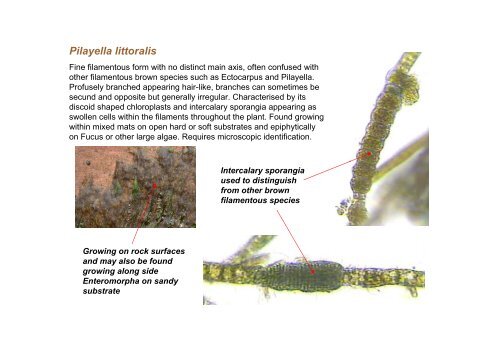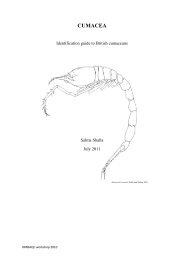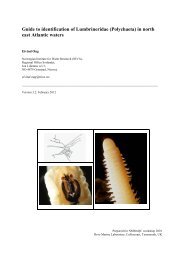s A Field Guide to the British Seaweeds - NMBAQC
s A Field Guide to the British Seaweeds - NMBAQC
s A Field Guide to the British Seaweeds - NMBAQC
You also want an ePaper? Increase the reach of your titles
YUMPU automatically turns print PDFs into web optimized ePapers that Google loves.
Pilayella lit<strong>to</strong>ralis<br />
Fine filamen<strong>to</strong>us form with no distinct main axis, often confused with<br />
o<strong>the</strong>r filamen<strong>to</strong>us brown species such as Ec<strong>to</strong>carpus and Pilayella.<br />
Profusely branched appearing hair-like, branches can sometimes be<br />
secund and opposite but generally irregular. Characterised by its<br />
discoid shaped chloroplasts and intercalary sporangia appearing as<br />
swollen cells within <strong>the</strong> filaments throughout <strong>the</strong> plant. Found growing<br />
within mixed mats on open hard or soft substrates and epiphytically<br />
on Fucus or o<strong>the</strong>r large algae. Requires microscopic identification.<br />
Growing on rock surfaces<br />
and may also be found<br />
growing along side<br />
Enteromorpha on sandy<br />
substrate<br />
Intercalary sporangia<br />
used <strong>to</strong> distinguish<br />
from o<strong>the</strong>r brown<br />
filamen<strong>to</strong>us species




